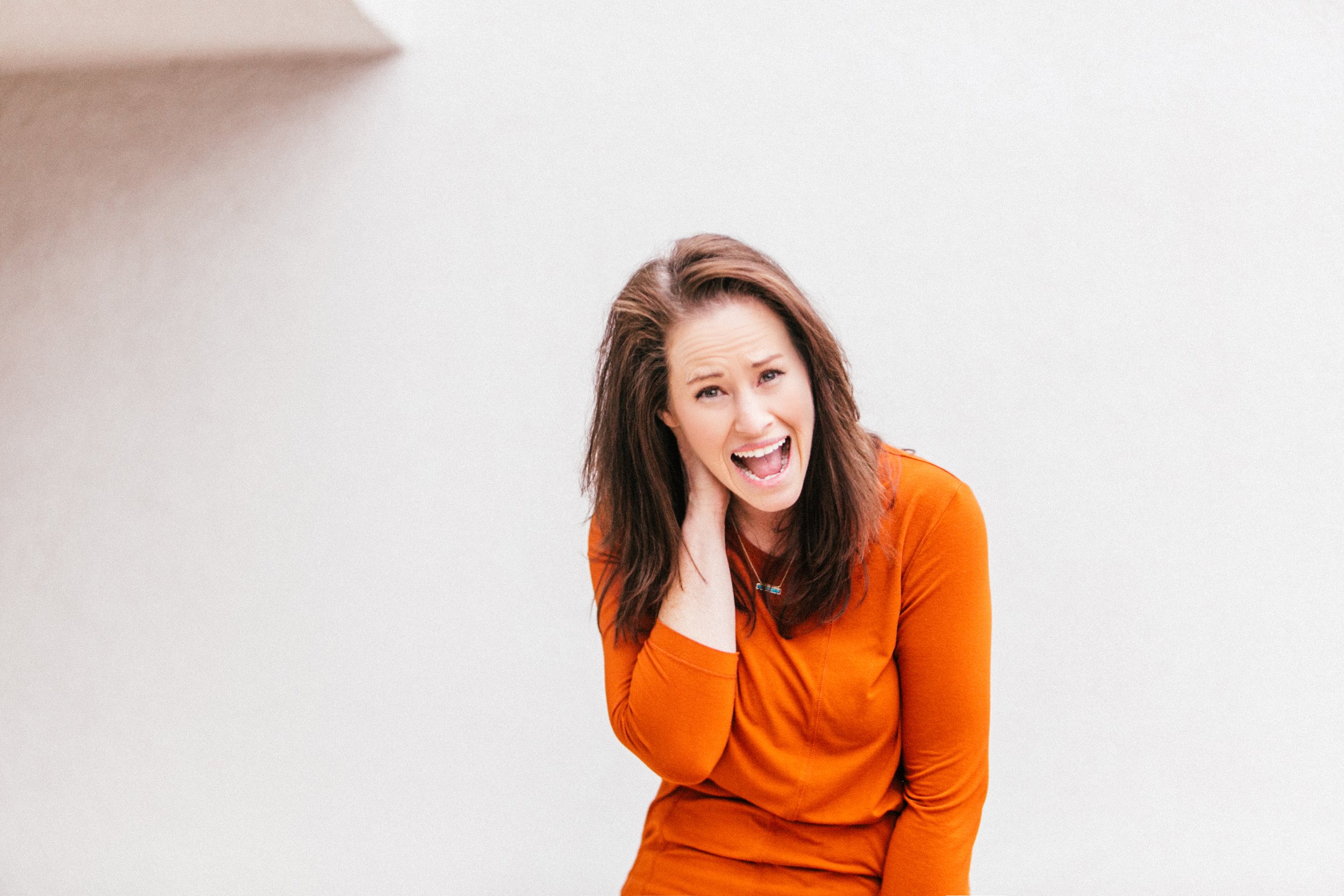When a weak area may actually be your game-changing strength: My public speaking and confidence journey.
I was 11, and got too emotional to calmly explain to my parents why I should be allowed to buy a pair of Doc Martens.
I was 13, and couldn't get the words out as I stood at the front of my class clutching a report with shaking hands.
I was 16, and couldn't remember what I was trying to communicate as I sat in front of two senior leaders at my job (hostessing at Claim Jumper in CA!) when I wanted a promotion.
And it got worse through my early career.
I repeatedly proved to myself over a lifetime that it was not safe to be public speaking, or to advocate for myself. It was a weakness to be avoided.
No confidence or passion.
Then there was the zero belief in myself. I was lacking in social skills. I was very often lonely. Totally insecure.
I was the last person you'd expect to be regularly teaching, building influence and visibility today.
Much less scouting for and training thought leaders.
A weakness - or a hidden strength?
We're told often by very smart people that we should work on amplifying our strengths - make them superpowers. Hire out for our weaknesses.
But here's what you need to know:
This advice is easily misappropriated.
Some things you may be weak in right now are NOT WEAKNESSES.
In reality, they are incredible, game-changing strengths.
How a strength becomes a weakness:
Simplified - with bad experiences, our growth stops in that area.
We stay small for safety.
When we experience failure, it's easy to think that we are weak in that area. It's a experience-reinforced belief.
Here's how I did it - turned a perceived area of weakness into a superpower.
What separates strengths from weaknesses?
Three key things, in order:
Passion
Practice
Power
Passion
Something has to move you to change.
What made me push through the pain of failure, get help, and break through the chokehold of this weakness?
I have two daughters - I didn't want to train them to stay small.
I couldn't advance in business how I needed to - our brand needed me to be the face of our business as founder.
I couldn't fully train thought leaders without living it first.
Now, public speaking, teaching, being confident when I walk into the room is something I LOVE to do and am continually getting better at doing.
Bottom line, it was going to hold me back significantly.
There was a passion - but in reality, it was NOT for public speaking. The passion for me was in my moving through it. And it was enough to get me to # 2 - Practice.
Practice
Practice means you take that weakness and send it to the gym. You need your reps. You need muscle in that area. Training. Skills developed through doing the work.
Practice retrains your brain. Creates possibility with new neural pathways - new abilities - and importantly, proves to YOU that you can learn new things.
Practice means that you can surpass even those who are 'naturally gifted'.
For my daughters, I started with teaching them public speaking by walking up to the order line at Starbucks while I sat nearby. From age 6+ they would have to confidently raise their young voice to speak directly with eye contact to the kind baristas and ask for a mini-cappuccino and ice water.
Of course it wasn't easy at first. But you should see them now with all the practice, wins, failures they've banked.
I fumbled my way learning public speaking on Clubhouse watching and learning friends and heroes like Lola Bakare, Nidhi Tewari, LCSW, Dr. Tina Opie, Denise Hamilton, Greg Satell, Andrea Kates.
I listened, observed, asked for guidance, practiced, failed, succeeded. Put in the reps. Stayed in the pool long enough to learn.
Power
It's possible to be good at something, but not powerful in it. Not confident in that strength. When you lack confidence in yourself, that strength is minimized, and it keeps you much smaller than you actually are.
Because practice puts you in the room with others who are on the same pathway (it's like seeing yourself around strong people at the gym) you begin to see yourself like you ARE that thing.
It's crucial - and powerful - to see yourself differently.
Confidence is a decision - NOT a feeling.
Once you start to see yourself practicing, and repeatedly doing that thing with small wins, your confidence increases.
Confidence unlocks the precision, patience to move from where you are to where you want to be.
If you're strong in an area, it's amplified when you're confident about that strength.
Welcome to your new superpower.
It's worth the work.
Feel like there's something holding you back?
Pretty sure it's a weakness?
As Reid Hoffman, founder of LinkedIn and my fave conscious startup authority says, it's time to question your assumptions.
Don't overthink it.
Just get started.
It's time to find that passion. Listen to your intuition.
Hit the gym and practice.
You'll unlock power - a confidence that people can sense.
Door will open to what you want.
Julie is the founder of DIY Influence. She believes you shouldn't wait for recognition, that it's time to recognize yourself. She has partnered with 100+ thought leaders in the US and across the globe to drag the genius out of their brain, so they scale their impact - and to own it on LinkedIn. She hosts How To: Thought Leadership and co-hosts Live on Cyber with Dr. Stan.

